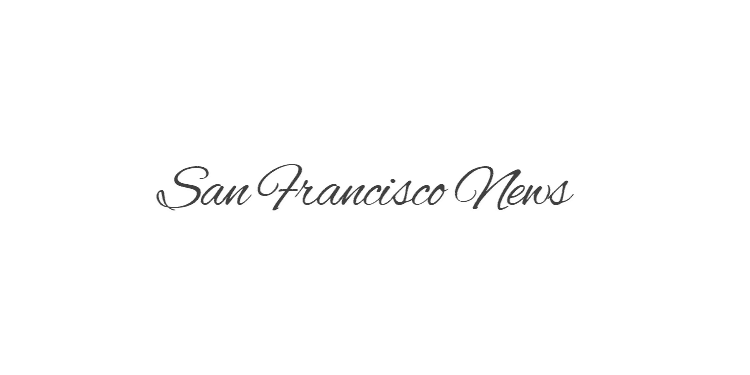A woman walks past an empty Claude Lane along Sutter Street in San Francisco’s Financial District in 2022. A proposal by Aaron Peskin would streamline the process to program avenues like this with live events.
Jessica Christian/The Chronicle
Since the Dawn Club’s debut in downtown San Francisco last spring, owner Brian Sheehy has been relatively pleased with the environment surrounding his latest establishment. The streets have become noticeably cleaner and “safer” over the past year-and-a-half, he said. The only thing “missing” is potential customers.
Sheehy has been working to activate Annie Street — an alleyway off Market Street that holds the Dawn Club’s entrance — with outdoor seating and live jazz music. It’s an effort to create a buzz as many office workers remain remote and hotels continue to struggle amid a dip in convention business this year. Sheehy applied for a required “Table and Chairs” permit through the city’s Shared Spaces program a year ago, but is still waiting for its approval.
“It’s still a real hassle to get a simple permit,” Sheehy said. “A lot of other owners won’t have the same perseverance.”
Article continues below this ad
Legislation announced Tuesday seeks to breathe new life into downtown’s sleepy corners where clusters of bars, restaurants, venues and offices are located by cutting the bureaucracy involved in permitting outdoor events, programming and boozing in select areas. It’s the latest proposal to bring live events to parts of San Francisco, following Downtown First Thursdays, a monthly block party in the SoMa neighborhood, a semi-regular Bhangra Beats night market and the creation of an entertainment zone in the Financial District, among others.
The proposal, spearheaded by Board of Supervisors President Aaron Peskin, would designate nearly a dozen new entertainment zones, which allow businesses to sell alcoholic beverages during outdoor events and activations.
An empty Maiden Lane off Union Square in San Francisco could be the site of future live events if a proposal to streamline the ability to program these spaces is approved.
Lea Suzuki/The Chronicle
Dubbed the Greater Downtown Community Benefit District Master Permit for Entertainment Activation — or Greater Downtown Activation Program, for short — Peskin’s ordinance would create a permit program managed by San Francisco Public Works for outdoor events by the nonprofits that administer downtown’s Community Benefit Districts, or CBDs.
CBDs are self-taxing districts in designated geographical areas that use assessments from property owners to fund improvements and augment city services within their boundaries — in essence, mini governments. Overall, there are 17 CBDs in San Francisco, four downtown.
Article continues below this ad
These districts already have the infrastructure to create management plans, report annually with the city on those plans and on any funding they receive, and are evaluated on how they’re meeting performance benchmarks for their programming, Peskin said. Now, he’s empowering them to manage and coordinate events and programming within their bounds as master permit holders.
Under Peskin’s proposal, the four downtown CBDs — the East Cut, Yerba Buena CBD, Union Square Alliance and Downtown SF Partnership — would each feature entertainment zones within their boundaries, and must commit to holding a minimum of 30 events per year in one or more of the zones. In exchange, they may apply for master permits for events, programming and activations that are good for up to five years.
“Right now, individual organizations or each individual business would have to go off and get these permits,” said Scott Rowitz, executive director of the Yerba Buena CBD.
Involving the CBD as the “master entity to really guide the process” mirrors a setup that already exists in Yerba Buena Gardens, he said, adding that it “encourages tremendous activation.”
San Francisco recently became the first city in the state to designate an entertainment zone — sanctioned this year under a new state law — in its Financial District along Front Street. That effort was led by Mayor London Breed.
Article continues below this ad
“The mayor has fought for change to state law to allow for entertainment zones, has implemented the local laws to do it, has invested in public activations and launching these entertainment zones,” said Jeff Cretan, Breed’s spokesperson. “Any efforts that make it that easier for public space activations and entertainment zones to happen are a good thing.”
The proposal, which is spearheaded by Board of Supervisors President Aaron Peskin, would designate nearly a dozen new entertainment zones, which allow businesses to sell alcoholic beverages during outdoor events and activations.
Jessica Christian/The Chronicle
Cretan said Breed’s office has not yet had a chance to review Peskin’s proposal, but added that the additional entertainment zones it is planning will likely be announced in the fall, and will not be exclusive to downtown.
“They’ve turned on a light bulb — we’re turning on all the lights at once,” said Peskin, who is challenging Breed in her bid for reelection this November.
“CBDs are already doing some of these events. We want to make it easier, and we want to incentivize collaboration with other local nonprofits and arts organizations that might have less capacity to take advantage of this master permit, as well, by partnering at no cost with the CBDs on cultural events,” Peskin said.
Article continues below this ad
But, like many other things that require multiple layers of permitting in the city, approving outdoor events that involve music, street closures and alcohol consumption is lengthy, consuming and can involve multiple programs, city departments and permits. These include the City Plaza and Shared Spaces programs, street encroachment permits issued by Public Works, road closure permits issued by the Municipal Transportation Agency and outdoor assembly event permits issued by the fire department.
The Entertainment Commission is also involved, as it regulates activities involving amplified sound, limited live performance and entertainment permits. Outdoor alcohol consumption is only allowed with outdoor seating permits or with certain event permits.
And under the new state law for entertainment zones, businesses with alcohol licenses may sell alcohol outdoors within these zones in accordance with a management plan that must first be issued by the Office of Economic and Workforce Development.
Peskin’s plan is to heavily streamline this process. His ordinance creates a new fire department permit specific to downtown events that can count for multiple events held inside of the entertainment zones; it exempts planned events that involve sound or live music from review by the Entertainment Commission. It would also eliminate the need for management plans for entertainment zones by the Office of Economic and Workforce Development.
“I think that Shared Spaces was a great start and a great outcome coming out of the pandemic — but it’s not a one size fits all solution for regular programming and activation,” said Robbie Silver, executive director of Downtown SF Partnership, which spans the 43-block Financial District and Jackson Square neighborhood.
Article continues below this ad
The area covered by Downtown SF Partnership is home to the Front Street entertainment zone, which is slated to debut its first concept — Oktoberfest — in the fall.
The district also includes the Landing at Leidesdorff, a project that involved transforming an alley into a pedestrian-friendly space with outdoor music, dining and murals. Silver said the process for programming and permitting the space spanned roughly a year.
“It can be extremely difficult, closing a street, programming it on a regular basis and then, a year later, having to go back and redo the same permit process,” Silver said. “Imagine what we can do in the city just by removing the bureaucracy and being creative with our own codes.”
The areas that will feature the new zones established under Peskin’s legislation are Annie Plaza, Gold Street, Claude Lane, Harlan Place, the Jessie Alleys, the Landing at Leidesdorff, Maiden Lane, Natoma Street and Second Street. “We are going to breathe a ton of life into downtown,” Peskin said.
Close to $3 million has been allocated to the four bids to support their programming. The funding will go toward assigning evening ambassadors to the Theater District and Union Square neighborhoods, a performing arts ticket kiosk, reduced parking rates in Union Square and new events and programming in each of the CBDs.
Michelle Delaney, owner of 111 Minna Gallery & Event Space, said she supports any effort to speed up event permitting and ultimately fill the city’s streets with entertainment and life. But she added that she would like to see the city also ease rules around businesses’ ability to host private events outdoors.
“There’s no one coming to the outdoor public events,” Delaney said. “Allowing Salesforce, the big conventions, or holiday parties from one of the offices around here to take their drinks outside, maybe that should be part of this. Because those are the only people that I’m getting.”
Reach Laura Waxmann: [email protected]
Copyright for syndicated content belongs to the linked Source link











